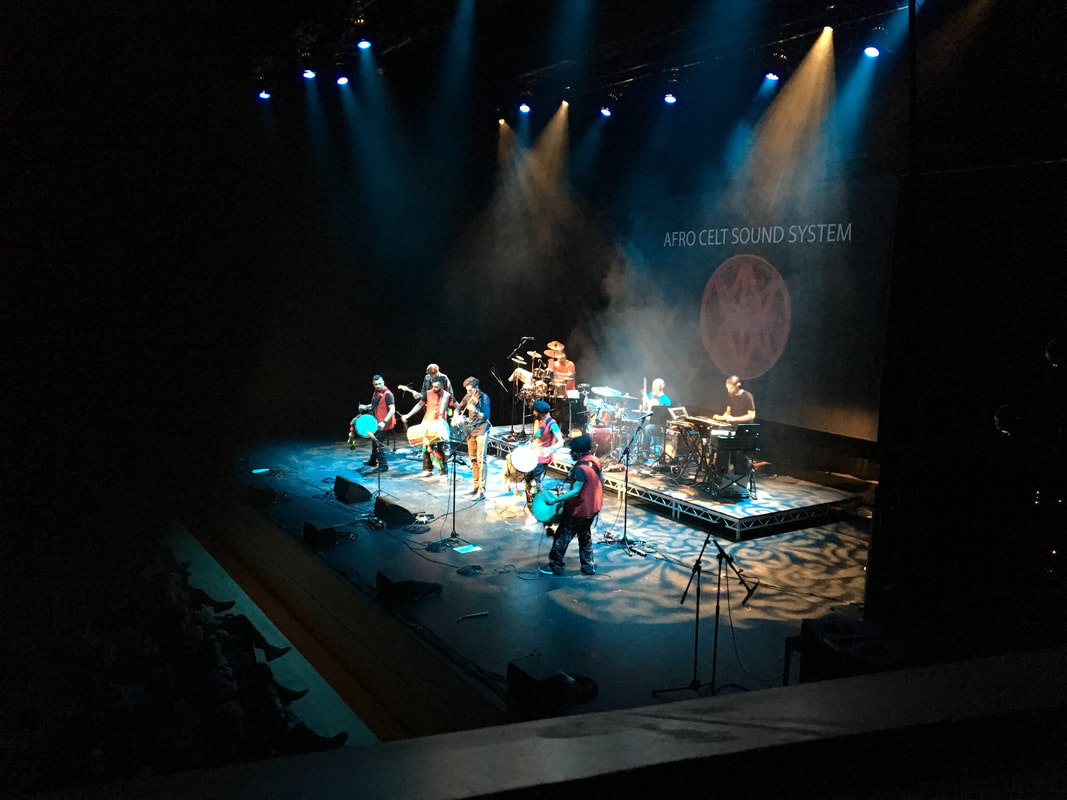It's not 'fused' - you can hear clearly all the different original traditions at once - but together they do produce something new and amazing and exciting.
I think the reason I was so uplifted (not just from the amazing music itself but from the experience) is the fact that all of these people working together and creating this amazing new thing are a fabulous example of how much richer we are when we embrace and respect each others' traditions and when we celebrate what we achieve together...
This was in contrast to the direction the UK seems to be moving at the moment, and specifically the horrible comments I'd been reading the few days before on Emma Dabiri's Twitter feed claiming (in a nutshell) that Irishness cannot include anyone who is not white and being particularly nasty about people of mixed heritage.
There was a lot of talk about 'purity' in this thread - and I guess it wasn't a surprise that the comments came back into my head while I was watching a Punjabi-Sikh (from Slough - big up Slough) accompanying an Irish fiddler playing a reel...
Because while people claim that 'music is a universal language', there is much talk of purity in musical circles too - most especially in the area of folk or traditional music. On my last visit to Kerry I joined a great local trad session, but I was curious at the amazement at a local young flute player. Adopted as a baby, people were amazed at his facility to play Irish music - even though he'd been adopted into an extremely musical family - as if there was an Irish traditional music -gene.
I have no doubt that there are genes for musical aptitude, and I'm sure if this young boy was living in Russia, he'd be playing Tchaikovsky. But there isn't a gene for national music and it shouldn't come as a surprise that someone born elsewhere but growing up in a rich musical environment should be a skilled practitioner of a local tradition. When we talk of people being 'naturals' we somehow set up a situation where a tradition cannot be learned but has to somehow be inherited.
The thing about Afro Celt is that each musician is superb exponent of his or her traditional/native instrument and musical tradition. They are all amazingly skilled. And whatever about this talk of universal languages, actually even brilliant musicians from very different traditions cannot just roll up and start playing together...
So when Johnny Kalsi (the Slough Punjabi-Sikh dohl-player) said "you need three legs for this one, it's in sevenths" he was really acknowledging the level of difficulty of the collaboration in the next piece. For someone like me, steeped in an Irish tradition, I was loving it, but struggled to keep the beat! And I was in awe of the Irish flute and fiddle player who somehow managed to play some kind of slip-jig to it!
And the result was so amazing. For me, what is SO exciting about Afro-Celt is that it's not just a blend - you can hear all the different instruments and traditions clearly, but the experience of hearing them together is mind-blowing.
So, if you are saddened by the daily updates on Brexit with their attendant xenophobia and the emboldening of those voices which would argue for pure homelands, check out Afro-Celt and lift your soul.
http://www.afroceltsoundsystem.org.uk/
http://www.afroceltsoundsystem.org.uk/events/
For the current series of concerts they are being 'supported' by the Dhol Foundation.
www.dholfoundation.com

 RSS Feed
RSS Feed